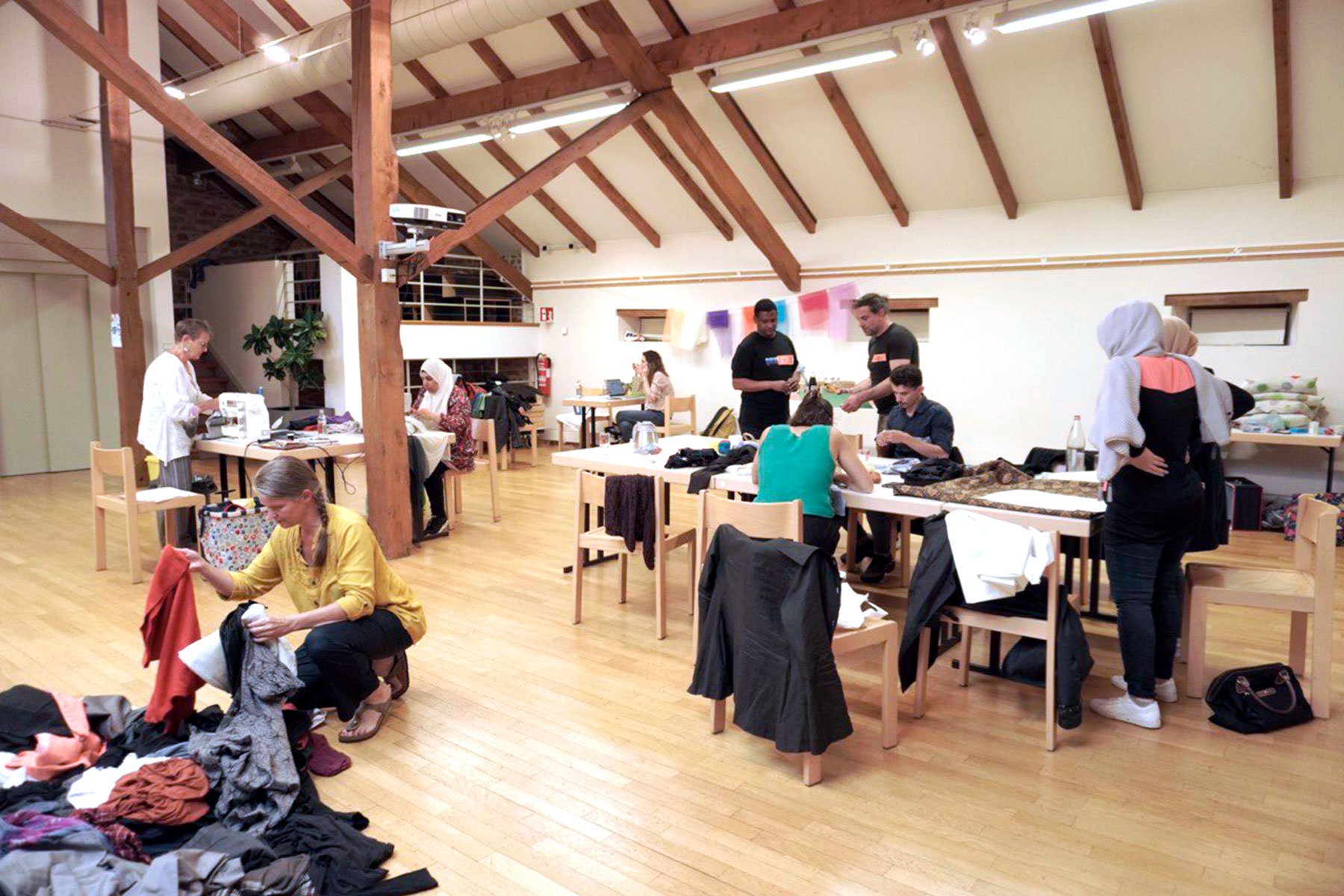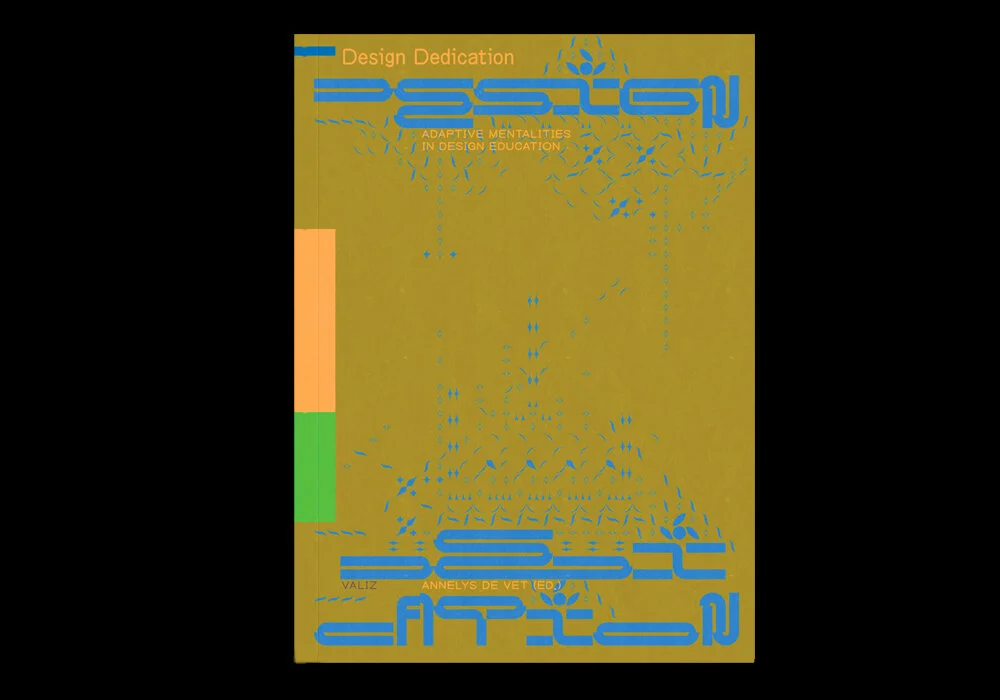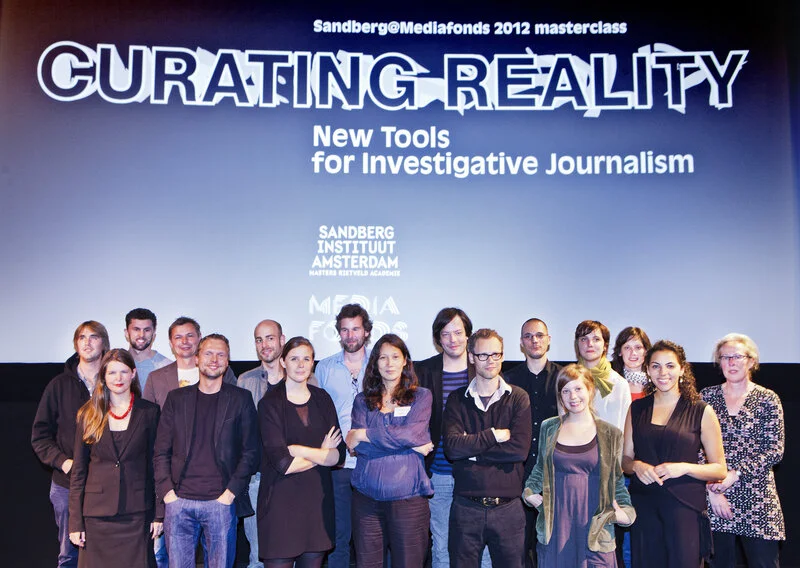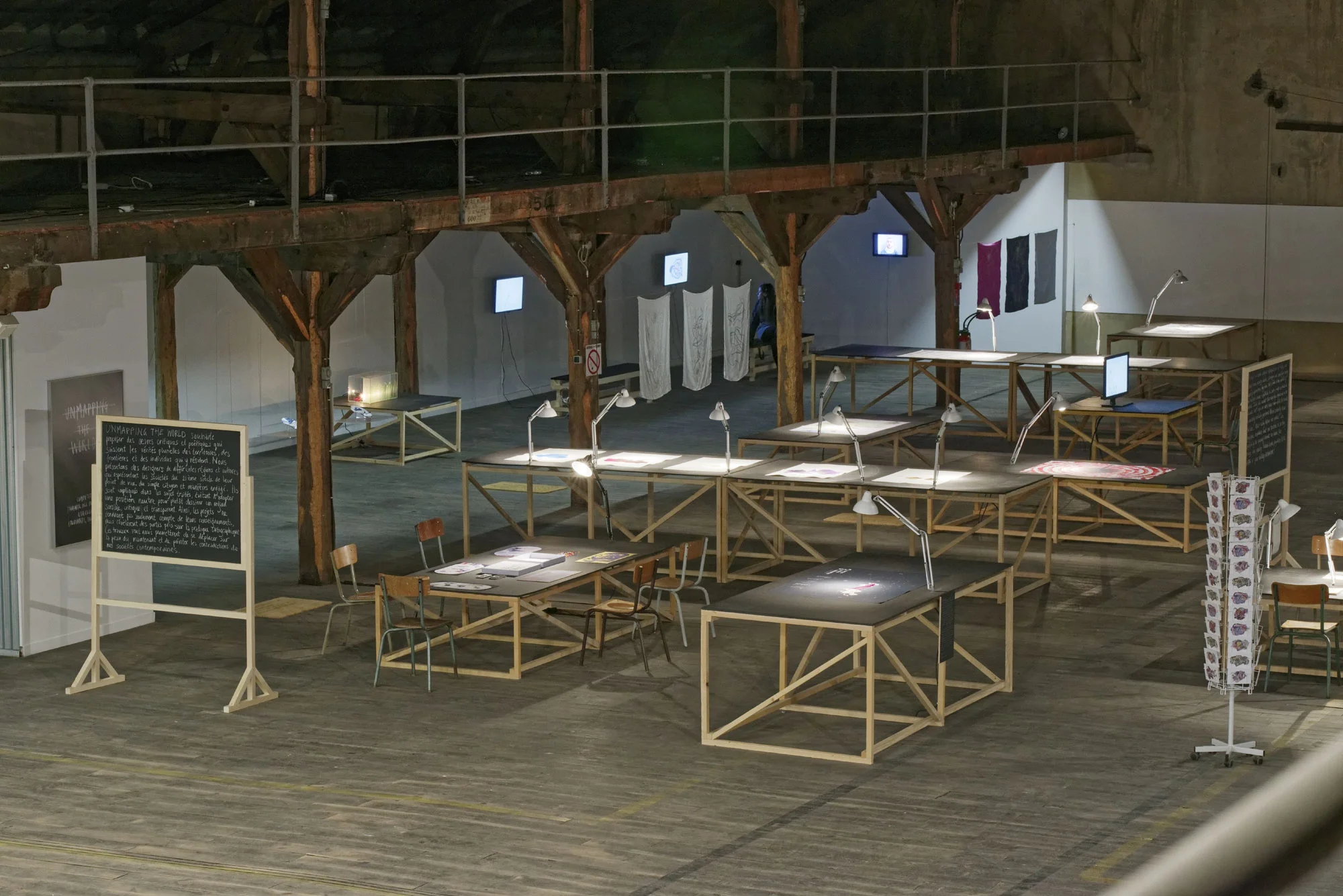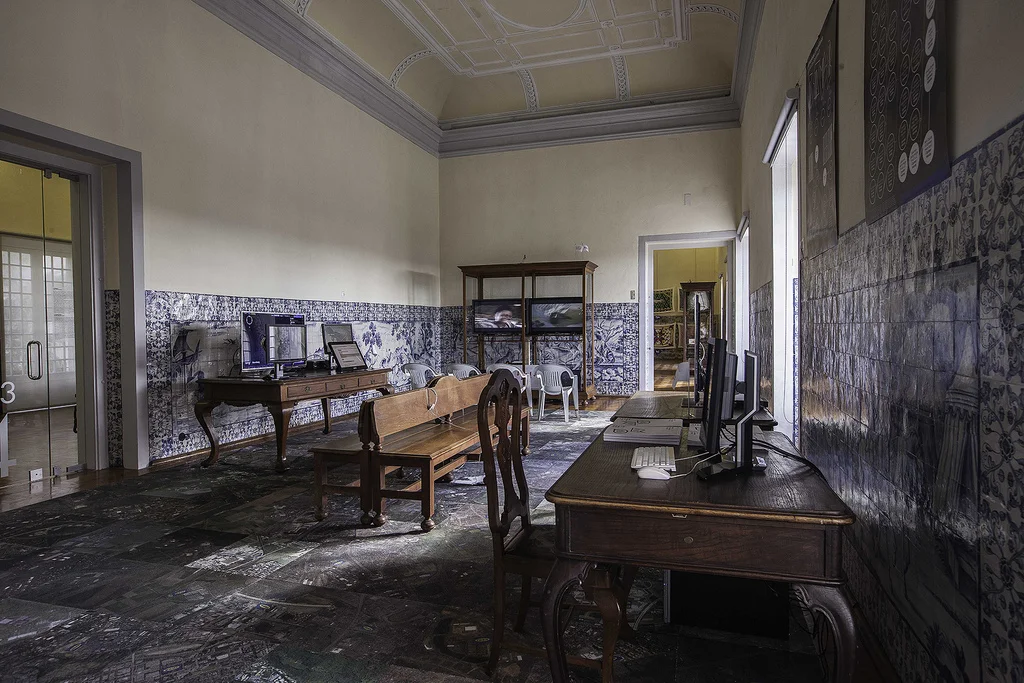Unmapping the World (Lisbon)
Exhibition, Experimenta Design ’13 NO BORDERS, Belém, Lisbon
UNMAPPING THE WORLD is an exploration into the field of reactive map making practices. It aims to counterpose the apparent neutrality of professional cartography through contemporary engaged mapping projects. In this exhibition, ways of mapping are used to resist the authority of state, to question ruling power structures and to expose the propensity of maps to simplify our world. The act of unmapping is presented as a poetic form of resistance.
UNMAPPING THE WORLD
9 November – 2 December 2013
Palácio dos condes da calheta, Botanical gardens, Lisbon
Curated by: Annelys de Vet and Nuno Coelho
Production: experimentadesign
Communication and Exhibition Design: Nuno Coelho with Sara Reis and DEVET (Moniek Driesse, Joana Rodrigues, Annelys de Vet)
Featured artists: Atelier Veldwerk, Bjørn Andreassen, Bregtje van der Haak, DEVET, Femke Herregraven, Hannes Bernard, Henrik Van Leeuwen, IICT, Katja Novitskova, Malkit Shoshan, Nuno Coelho, Paula Amaral, Paulo Moreira, Richard Vijgen, Rogier Klomp, Roosmarijn Pallandt, RSG, Ruben Pater, Shuchen Tan, Supersudaca and Yazan Khalili
A map is a coded compact representation of reality, and coding means making choices, classifying and simplifying many layers of information. Any choice that is made in the context of the territories shown, is political. As such, a map can never be neutral. Taking into account that maps play a regular role in the discourse, in the talk that shapes our world, makes them objects that should be constantly critically questioned. Which authority draws the lines? What really defines our borders? Do geographic boundaries limit our territories or are they specified by the speed of internet, tax havens, piracy, Google, Ikea or our holiday destinations?
To explore these questions UNMAPPING THE WORLD presents critical and poetic works that capture plural truths about nations, borderlines and the individual within them. The mapping projects build a narrative with the history and collection of the exhibition venue: the Tropical Research Institute. This association became the main cartographic institute of Portugal in the 19th century. From here on the world would be mapped, atlases were developed, studied and shared. Portugal sent scientists and researchers to draw the “new” worlds, according to the ruling European standards of measuring, interpreting and traveling. Firstly, mapping focused on the coastlines of these territories that were visited by boat. Slowly more and more land was put in perspective. But despite all the knowledge gained since, we are still not able to map the effects of those colonial times. In UNMAPPING THE WORLD therefore, we question if the early, rather empty maps, with large “unexplored” areas, could possibly be a more precise representation of reality then modern detailed charts, because they accept and embed the unknown.
No contemporary “cartographic commission” assigned somebody to make the contemporary maps shown in this exhibition, but the curators found partners and institutes to develop their works, from a sense of urgency to share the information and the narratives. 21st century societies are shown from bottom-up through the eyes of designers, artists and architects. They are involved in the subjects they show and don’t take neutral positions, but critical and transparent ones. As such, the projects not only reveal their own information, but also reveal meta-positions about map making.
All artists merge and explore the borders of their own artistic practices; they form international collectives in different countries and time-zones, mix disciplines and take positions. What binds them are investigative practices in which research and design complement each other. Their goal is not to give form to information, but to deal with it in a critical and transparent way. This also counts for the curators, who are practicing designers themselves. One based in Belgium and the other in Portugal, they both engage in education, research and design. This exhibition brought their worlds together, as part of an ongoing research to find the right project vocabulary to determine the boundaries of contemporary reactive map making. Their research is essential because the liquid times we live in require a fundamentally different approach to cartography, one that doesn’t draw borders, but opens them up in the mind.






























